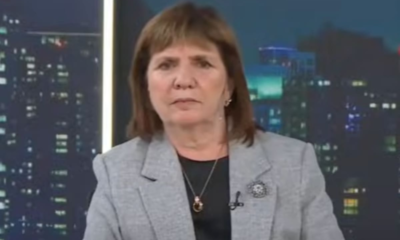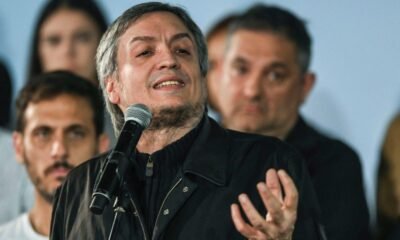INTERNACIONAL
El cardenal Ángel Rossi y el sucesor del Papa: “Esperemos que no haya un cambio brusco y que aquel que suceda a Francisco tome su legado»

INTERNACIONAL
Alemania, Francia, Italia y el Reino Unido exigieron el fin inmediato de la guerra en Gaza ante la amenaza de una hambruna masiva
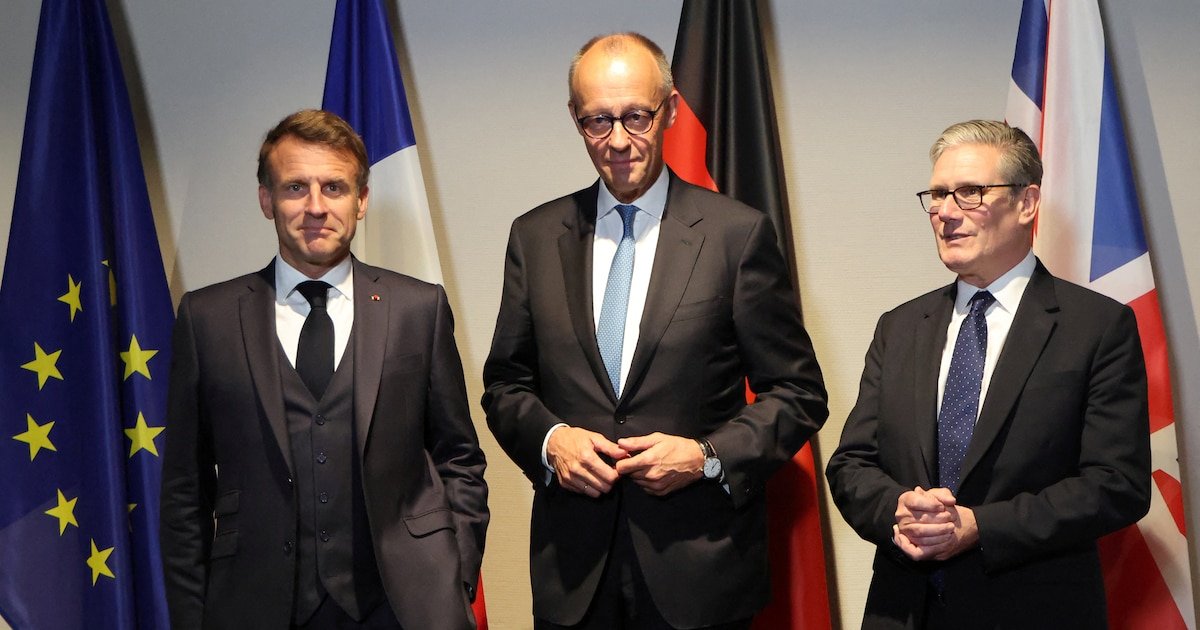
Los líderes del Reino Unido, Francia, Italia y Alemania reclamaron este viernes el cese inmediato de la guerra en la Franja de Gaza, donde la crisis humanitaria se agrava cada día. En un comunicado conjunto divulgado por Berlín, el primer ministro británico Keir Starmer, el presidente francés Emmanuel Macron y el canciller alemán Friedrich Merz exigieron a Israel que levante de inmediato todas las restricciones al flujo de ayuda y permita la labor urgente de la ONU y de organizaciones humanitarias ante el riesgo de hambruna.
“El tiempo de poner fin a la guerra en Gaza es ahora”, declararon Starmer, Macron y Merz. “Urgimos a todas las partes a alcanzar un alto el fuego inmediato”, reiterando su respaldo a los esfuerzos diplomáticos de Estados Unidos, Qatar y Egipto para obtener un acuerdo.
En el texto difundido por Berlín, los dirigentes subrayaron que “la catástrofe humanitaria en Gaza debe acabar de inmediato”. Insistieron en que “las necesidades más básicas de la población civil, incluido el acceso a agua y alimentos, deben ser satisfechas sin más dilación”. Los tres mandatarios coincidieron al calificar de “inaceptable” la retención de asistencia humanitaria esencial y recordaron a Israel su obligación de respetar el derecho internacional humanitario.
Por su parte, el ministro de Relaciones Exteriores de Italia, Antonio Tajani, se sumó al cuestionamiento internacional y manifestó: “Ya no podemos aceptar las masacres y la hambruna en la Franja de Gaza”.
Tajani aclaró que Italia no reconocerá al Estado palestino unilateralmente, como anunció Francia, y condicionó cualquier reconocimiento a la reciprocidad de parte de Palestina hacia Israel. También subrayó la necesidad de un “alto el fuego inmediato”, y la primera ministra italiana Giorgia Meloni describió la situación en Gaza como “dramática”, insistiendo en que ninguna acción militar puede justificar ataques contra civiles.

Más de 100 organizaciones de ayuda humanitaria y de derechos humanos alertaron esta semana del avance de una “hambruna masiva” en Gaza, después de más de 21 meses de conflicto armado. Según los datos del Ministerio de Salud de Gaza, bajo control del grupo terrorista Hamas, la ofensiva militar de Israel ha causado la muerte de 59.676 palestinos, en su mayoría civiles. Por su parte, el ataque de Hamas en territorio israelí el 7 de octubre de 2023 provocó 1.219 muertes, principalmente entre la población civil, y la captura de 251 personas como rehenes, de las cuales 49 siguen en Gaza, incluyendo 27 que, según el ejército israelí, habrían fallecido.
La Organización Mundial de la Salud (OMS) describió la crisis en Gaza como “provocada por el hombre”, mientras que Israel rechazó cualquier responsabilidad por el agravamiento de la situación. Israel impuso un bloqueo de ayuda al enclave palestino en marzo, el cual relajó parcialmente dos meses después, pero mantuvo al margen el sistema de distribución de la ONU.
Además, los líderes de Alemania, Francia y el Reino Unido repudiaron “cualquier intento de anexión israelí de los territorios palestinos ocupados” y advirtieron que “las amenazas de anexión, los asentamientos y la violencia de los colonos socavan las perspectivas de una solución negociada de dos Estados”. Exigieron que el ejército israelí se retire de las zonas ocupadas en Gaza y que los líderes de Hamas abandonen el enclave, como elementos clave para avanzar hacia una solución política.
Al llamar a Israel a “levantar de inmediato las restricciones al flujo de ayuda y a permitir de forma urgente que la ONU y las oenegés humanitarias actúen contra la muerte por hambre”, los gobiernos europeos reafirmaron su “firme oposición a todos los esfuerzos por imponer la soberanía israelí sobre los Territorios Palestinos ocupados”.
El comunicado tripartito del grupo conocido como E3 –Alemania, Francia y el Reino Unido– también exigió la liberación inmediata de todos los rehenes israelíes aún en manos de Hamas y remarcó que “el desarme de Hamas es imperativo y Hamas no debe tener ningún papel en el futuro de Gaza”.
Las autoridades de los tres países expresaron su compromiso de trabajar con la ONU y otros países para desarrollar un plan “específico y creíble” de transición que permita instalar un sistema de gobernanza en Gaza, garantizando la seguridad y la llegada de ayuda humanitaria. Plantearon que esto “debe estar acompañado por la retirada de las fuerzas israelíes y la salida de los líderes de Hamas”, como pasos hacia la implantación de una solución negociada basada en dos Estados.
Mientras Francia anunció el jueves su intención de reconocer al Estado palestino durante una reunión de la ONU en septiembre, otras potencias europeas y Estados Unidos continúan presionando para un cese del fuego inmediato y una negociación política que ponga fin al sufrimiento de la población civil y abra la posibilidad de una paz duradera en la región.
(Con información de AFP, EFE, EP y Reuters)
Diplomacy / Foreign Policy,Europe,THE HAGUE
INTERNACIONAL
Los Angeles Mayor Bass says ‘hell yeah’ she regrets Ghana trip after wildfires ravaged city
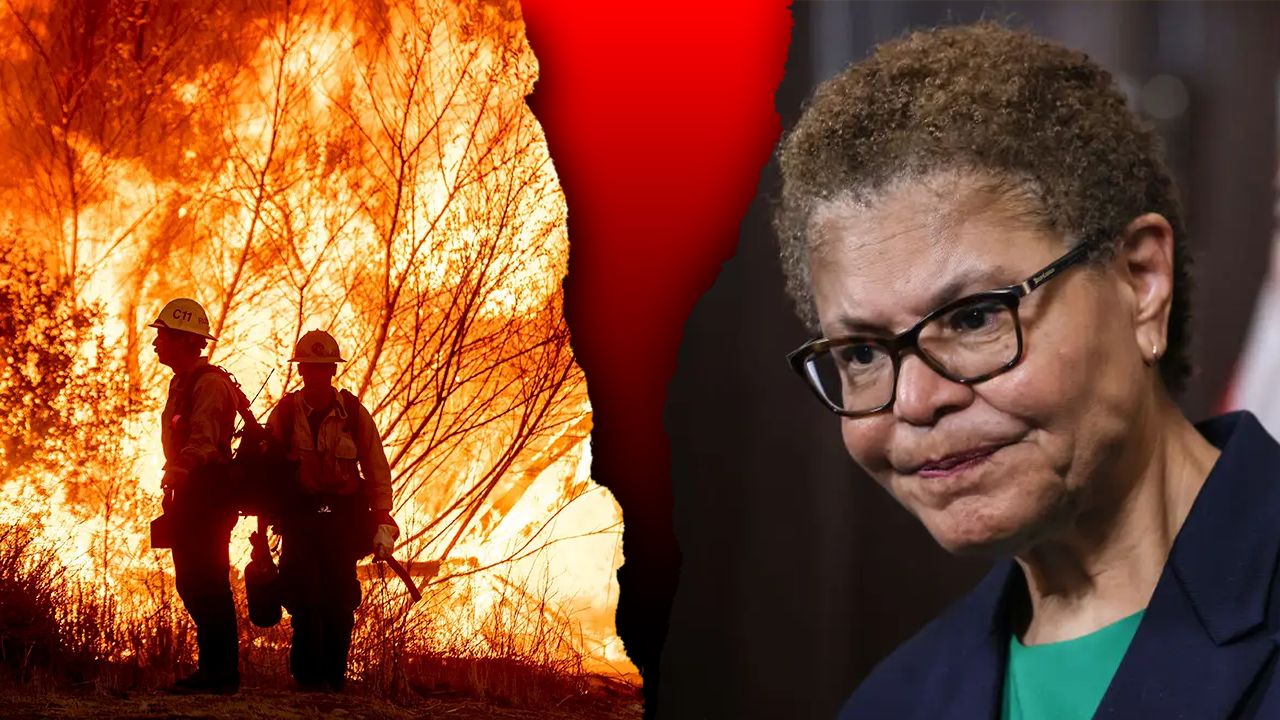
NEWYou can now listen to Fox News articles!
Los Angeles Mayor Karen Bass continued to express regret for her controversial Ghana trip ahead of the devastating fires earlier this year in a recent interview with Vice News.
«I was asked, ‘Do I regret going?’ Hell yeah. I mean, let me just do a comparison. If you are out of town and your kid or a member of your family gets sick or hurt, it doesn’t matter where you were or why you were there. You feel horrible,» Bass said in an interview with Vice News earlier this month.
«I’m really not trying to give excuses, but there was no way in the world I knew that the city was in danger when I left,» she later added. «Absolutely no way. And if you think about it through, if you take a step back, and because I did ask the chief when I came back, you know, like ‘Why didn’t you tell me?’ and basically the response was ‘Because we have Santa Anas all the time and nobody expected hurricane-force winds.’»
The mayor faced intense scrutiny for the presidential delegation’s visit to Africa even though there were warnings of the fire ahead of time. The Los Angeles Times reported that her team was aware of the fire risk before her trip.
She ended up returning the day after the fires began ripping through Los Angeles neighborhoods, like the Pacific Palisades, where thousands of buildings were destroyed.
LA MAYOR RIPPED FOR INTERFERING WITH ICE RAID AT CRIME-RIDDEN LOCAL PARK: ‘FULL OF S—‘
Los Angeles Mayor Karen Bass addressed her regret over her Ghana trip during the LA fires. (PATRICK T. FALLON/AFP via Getty Images)
«Well, I mean to be with honest with you. Well, I didn’t get briefed. That’s true. But I think that, again, people did not anticipate the historic wind. And it wasn’t just LA. It was the county too.»
«What typically happens is that if there’s going to be a big weather event, there are these briefings that happen and, uh, it’s either initiated by the fire department or the emergency department,» she said. «I was used to the fire chief calling me and telling me, you know, this is getting ready to happen. Come over. I need to brief you and all, you know, everything goes into motion. That didn’t happen in the county, meaning LA and LA County.»
On her flight back, she said she was on the phone almost the entire 12-hour flight back to the U.S. from Ghana.
SOCIAL MEDIA, TRUMP ADMIN ERUPTS OVER LA MAYOR’S REACTION TO ICE RAIDS: ‘YOU’RE A CRIMINAL TOO’
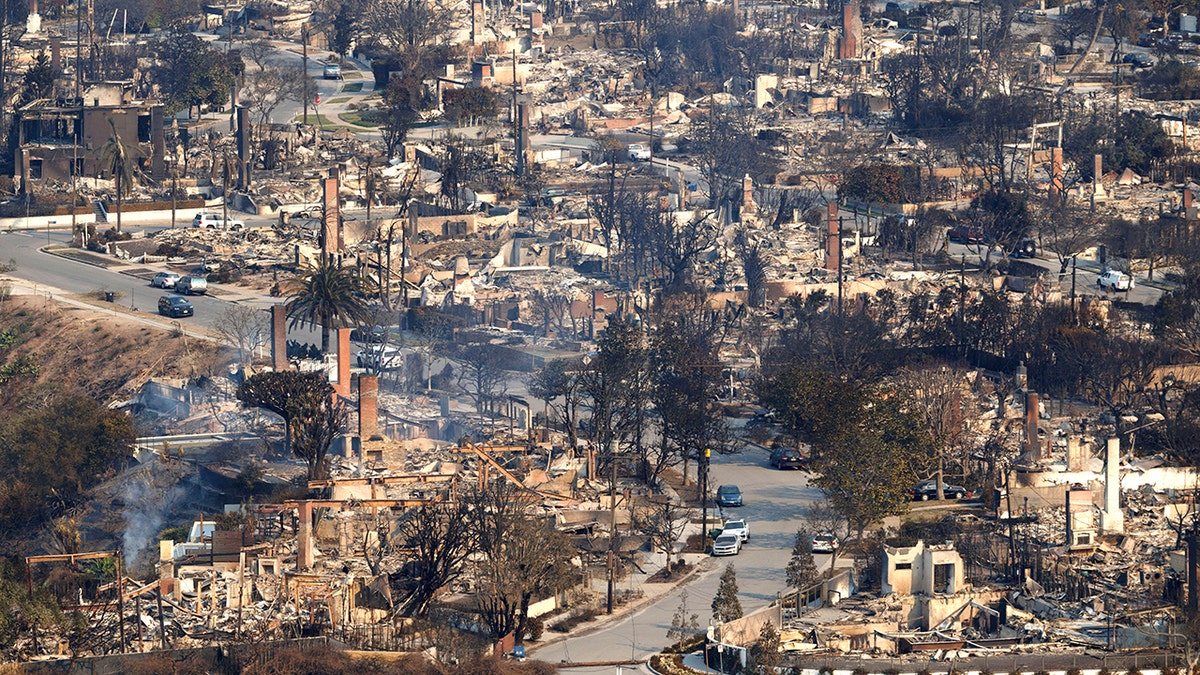
The aftermath of the fire in Pacific Palisades and along the Pacific Coast Highway. Officials said that at least 10 people were killed in all the Los Angeles fires, and 5,300 structures were destroyed in the Palisades fire. (David Hume Kennerly/Getty Images)
«Well, they’re telling me what’s happening in the fire. We were preparing the emergency declaration. They were talking to the mayor, the council president who serves as acting mayor while I’m gone. I don’t remember if I talked to him or not then, but because there were just a lot of phone calls. Sometimes a lot of people. I think I even did a news interview, but all of that was while I was on the way home,» she said, noting that she had phone access on the plane because it was a military plane, and she did not realize that the Sky News, who she went viral for not answering his questions, was even on the flight.
Bass ousted Los Angeles Fire Department Chief Kristin Crowley from her position in February, and Crowley unsuccessfully appealed her removal.
«Our firefighters support Chief Crowley because she stood up for the men and women of our department,» United Firefighters of Los Angeles City posted to X at the time.
In the interview, Bass claimed there were «lies told» about the budget and fire engines.
LOS ANGELES MAYOR SLASHES FIRE DEPARTMENT DEI BUREAU IN PROPOSED BUDGET MONTHS AFTER WOKE BACKLASH

Pali High School rests across the street from homes destroyed in the Palisades fire in Pacific Palisades on Jan. 7, 2025. (Genaro Molina/Los Angeles Times via Getty Images)
«Yes, there were broken fire engines. We find out later that those fire engines were there broken because they’re used for spare parts. But there were 40 fire engines that were idle because they didn’t have the staff that [Crowley] sent home. And the budget cut and I don’t I don’t know the reasons for it, and then the budget cut that never happened,» she added.
«Yes,» Crowley notably responded in an interview at the time of the fires when asked if city leadership «failed» her when it came to resources.
CLICK HERE TO GET THE FOX NEWS APP
«What we did when we did the budget was we put money aside for fire because we were in labor negotiations. If the budget was signed before then, but when the labor negotiations were done, we put it back in the budget. Which is a common thing. We’re doing that right now,» Bass said.
When asked about the after-action report for the fire, Bass said she would ‘look and see, but they should be about finished now.»
Fox News Digital reached out to Bass’ office and Crowley. Fox News Digital also reached out to the Los Angeles Fire Department, but they did not immediately comment.
INTERNACIONAL
Trump shrugs off France’s recognition of Palestine as Rubio, prominent Republicans blast move
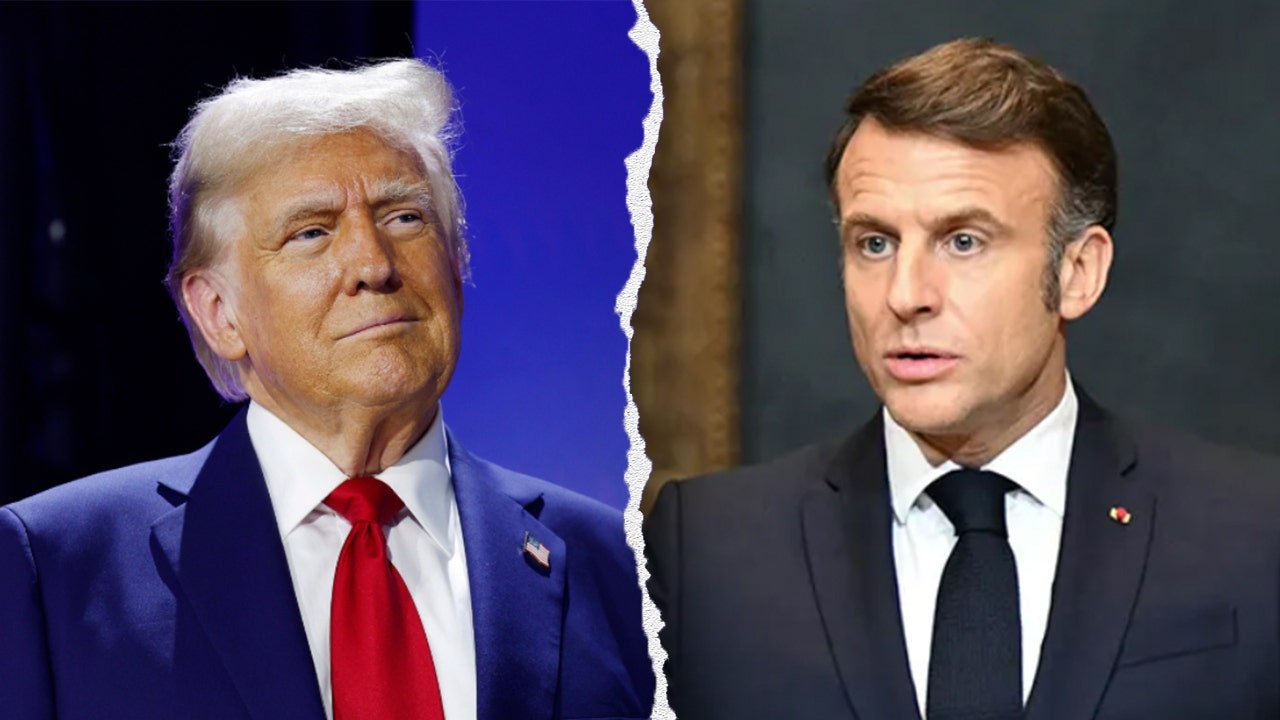
NEWYou can now listen to Fox News articles!
President Donald Trump on Friday dismissed French President Emmanuel Macron’s plan to recognize a Palestinian state — a notably gentler response than the sharp condemnation from Secretary of State Marco Rubio and other top Republicans, who blasted the move a day earlier.
«What he says doesn’t matter,» Trump told reporters at the White House. «He’s a very good guy. I like him, but that statement doesn’t carry weight.»
Macron took to X on Thursday to announce his intention for France to recognize a Palestinian state at the United Nations General Assembly next September.
Macron took to X on Thursday to announce France’s formal recognition of the Palestinian State at the United Nations General Assembly in September. (TERESA SUAREZ/POOL/AFP via Getty Images)
ISRAELI OFFICIALS OBJECT TO EXPECTED UN SECURITY COUNCIL CEASEFIRE RESOLUTION
Macron cited the need for an «immediate ceasefire» as well as the release of all hostages and humanitarian aid to the people of Gaza in his reasoning for France’s move. He also claimed that Hamas must be demilitarized and Gaza rebuilt in a letter to Palestinian Authority President Mahmoud Abbas he shared on X.
«The French people want peace in the Middle East,» wrote Macron in the letter translated to English on X. «It is up to us, the French, together with the Israelis, the Palestinians, and our European and international partners, to demonstrate that it is possible.»
The letter claimed that «peace is possible» while Macron said he is working to convincing other partners to follow suit.
Recognition of Palestine remains largely symbolic as it does not automatically grant UN membership or full diplomatic ties. Around 150 out of 193 UN member states recognize Palestine as a sovereign state.
Trump’s words were much gentler than the strong rebukes by Secretary of State Marco Rubio as well as Sen. Lindsay Graham, R-S.C., and Sen. Tom Cotton, R-Ark., on Thursday.
Rubio called France’s recognition «reckless» and a «slap in the face» to victims of the October 7 Hamas attack shortly after Macron made the announcement on Thursday.
«The United States strongly rejects French President Emmanuel Macron’s plan to recognize a Palestinian state at the UN General Assembly,» Rubio wrote on X.
«This reckless decision only serves Hamas propaganda and sets back peace. It is a slap in the face to the victims of October 7th.»
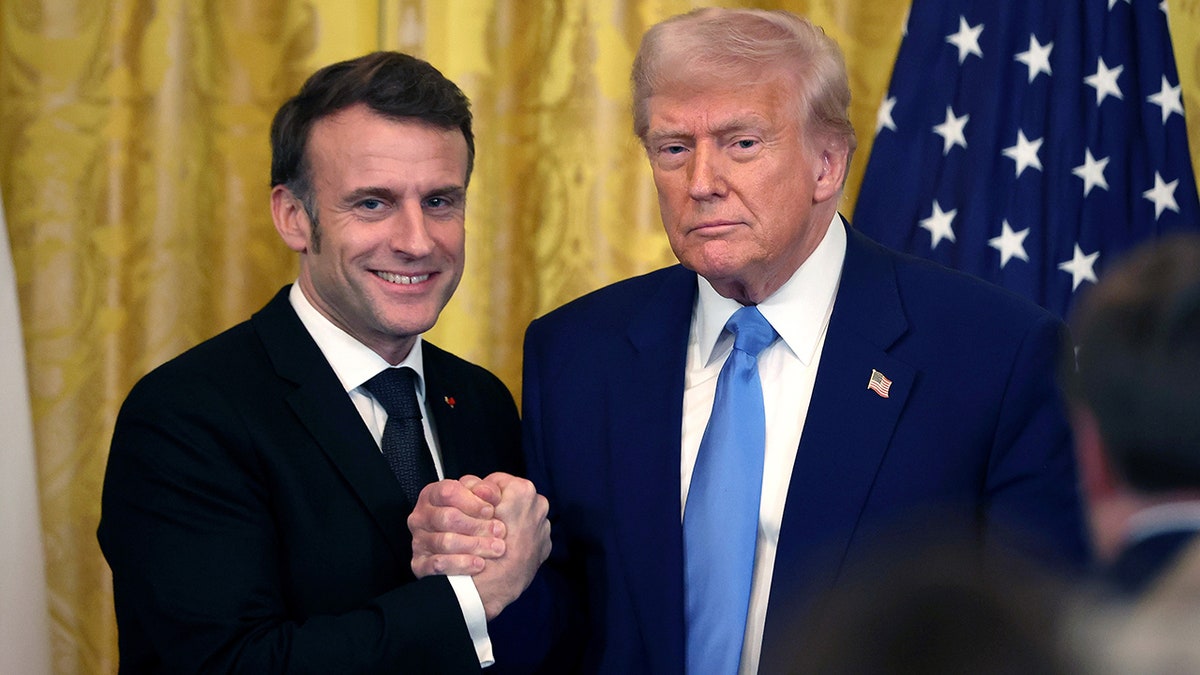
President Donald Trump and French President Emmanuel Macron shake hands during a joint press conference in the East Room at the White House on Feb. 24 in Washington, D.C. Trump on Friday dismissed Macron’s plan to recognize a Palestinian state. (Tasos Katopodis/Getty Images)
TRUMP ADMIN STANDS BY ISRAEL, REJECTS UN RESOLUTION BACKED BY UK AND FRANCE
Sen. Lindsay Graham, R-S.C., and Sen. Tom Cotton, R-Ark., joined Rubio in sounding off against Macron.
«The French government’s decision to recognize a Palestinian state is curious and disturbing on multiple levels. I am certain this will embolden Hamas and make a ceasefire more difficult,» Graham wrote on X.
Graham also railed against what he said were the shortcomings of such a plan, asking a series of rhetorical questions paired with sarcasm.
«Who’s in charge? What are the borders and boundaries? What is the governance structure? Does Hamas stay involved politically or militarily? Is the West Bank and Gaza part of a single state? Are they allowed to have an army? Does the education system change?» Graham wrote
«Other than these few missing details, it seems like a foolproof plan!»
Cotton also blasted the moves as a «shameful endorsement of terrorists.»
«The best way for this conflict to end is to back Israel in its righteous mission of rescuing the hostages and defeating Hamas,» Cotton said.
Israeli officials responded swiftly and sharply to Macron on Thursday.
Meanwhile, Israeli officials responded swiftly and sharply.
«We strongly condemn President Macron’s decision to recognize a Palestinian state next to Tel Aviv in the wake of the October 7 massacre,» Prime Minister Benajamin Netanyahu said in a statement.

Palestinians mourn relatives killed in the Israeli bombardment of the Gaza Strip, at a hospital morgue in Deir al-Balah, Tuesday, July 9, 2024. (AP Photo/Abdel Kareem Hana)
CLICK HERE TO GET THE FOX NEWS APP
«Such a move rewards terror and risks creating another Iranian proxy, just as Gaza became. A Palestinian state in these conditions would be a launch pad to annihilate Israel — not to live in peace beside it. Let’s be clear: the Palestinians do not seek a state alongside Israel; they seek a state instead of Israel.»
Deputy Prime Minister and Justice Minister Yariv Levin called the move «a black stain on France’s history and a direct boost to terrorism.»
He added: «The Land of Israel belongs to the people of Israel, and even President Macron’s declaration will not change that.» Levin called for Israel to apply sovereignty over Judea and Samaria and the Jordan Valley, calling it «a just and historic response to the shameful decision by the President of France.»

 POLITICA2 días ago
POLITICA2 días agoMáximo Kirchner declaró una fortuna de 8.300 millones de pesos: representa un 76% más que el año anterior

 POLITICA1 día ago
POLITICA1 día agoLa justicia de Santa Cruz desafío a la Corte Suprema e incluyó a Cristina Kirchner en el padrón electoral

 CHIMENTOS3 días ago
CHIMENTOS3 días agoEl desgarrador testimonio del hermano de Locomotora Oliveras: “El daño es irreversible, solo puede vivir con respirador”

















